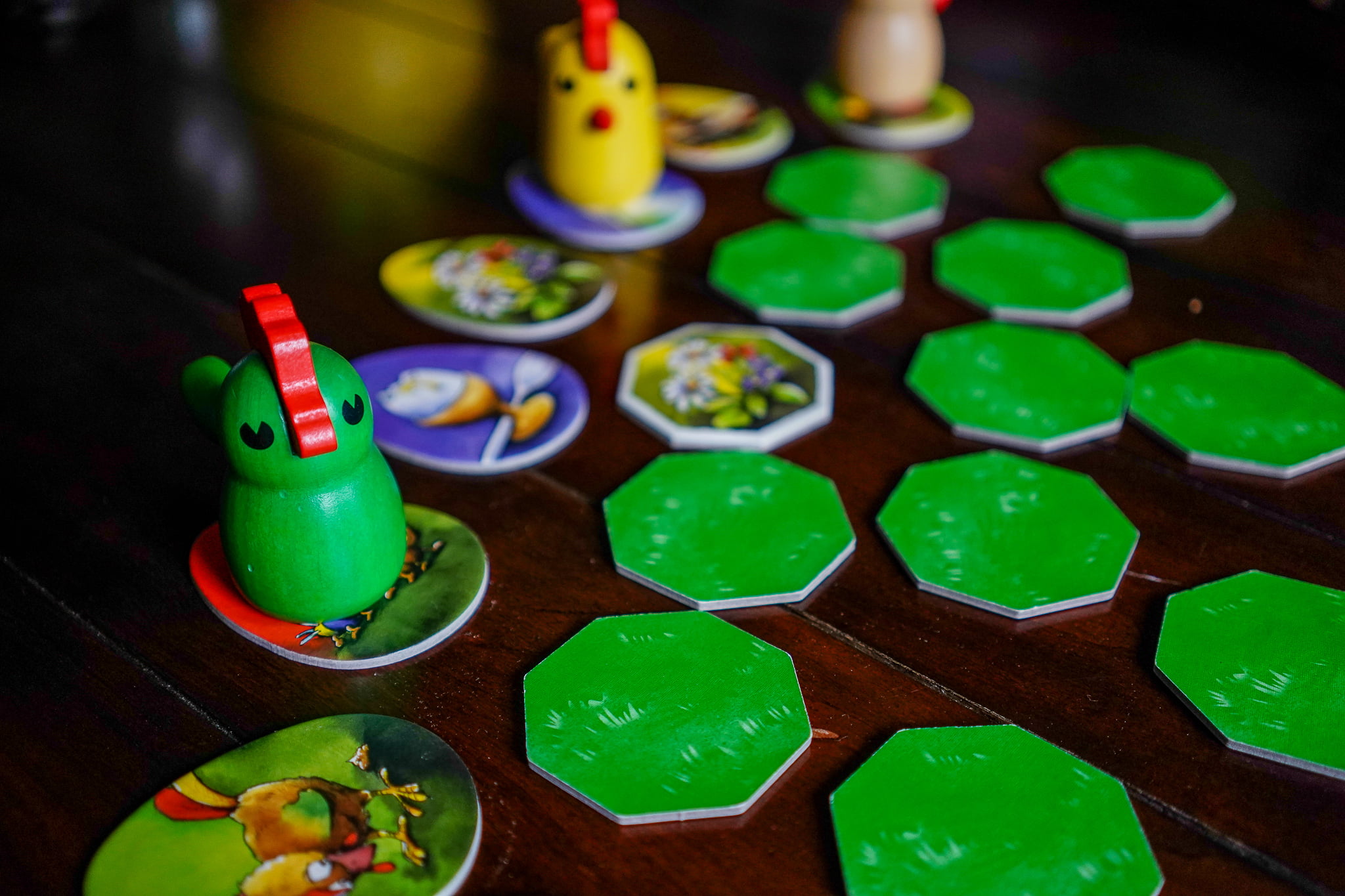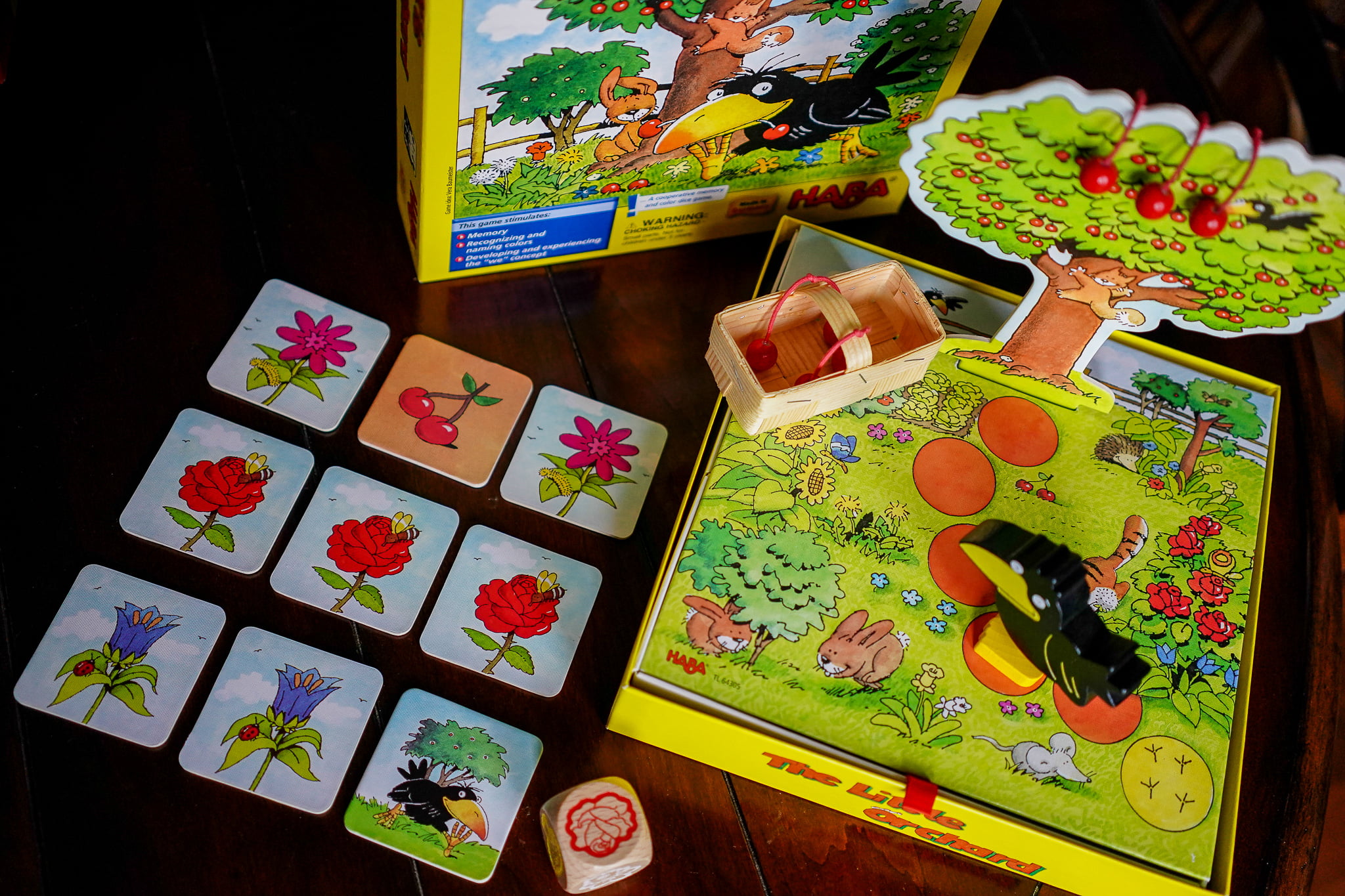How early can I introduce board games to my child?
Parents often fall into two categories.
a) parents who plays a lot of board games and are eager to get their kids into the hobby. So they start them early.
b) parents who don’t play board games and are more timid to introduce a game early on. Afraid that they might not be ready.
Regardless of age there will always be a board game suitable for every child. You can never be too early as long as you pick the right game. The age suggestions on games are often pretty close to accurate but every child is different. Some kids can handle a game above their age range while some are better suited to start one year after an age suggestion. For my own daughter there were 5 year old games that she could handle at the age of 4. But there were other 5 year old games that were too much for her until age 6. It’s very personality dependent. Read the description of the game to get an idea of the tasks they are expected to handle. You will know best if your child is at that stage. And if you are unsure, lean towards giving it a try. They will often surprise you.
What is a good age to start?
In general, we have found that the age of 3 is the sweet spot for introducing a board game. It’s the age where they start to listen and follow instructions better. They are also more verbal so you can communicate the rules better and have a better sense of their frustration. A child’s communication skills develop rapidly around the age of 3. So don’t be discouraged if your child that just turned 3 doesn’t seem ready. By 3 and a half, they might be game.
How about younger than 3?
There are a few games aimed towards 2 year olds that work pretty well. They often involve simple acts such as colour recognition and a pawn movement. Hoot Owl Hoot is one such game that works great with a two year old. It’s a simple colour match and move game. But it’s also cooperative. You work as a team to have a group of Owls reach their nest. This is also a game that I would use to introduce a 3 or 4 year old to board games. It will be pretty easy for them to grasp, but it’s a good introduction to the basic principles of games: follow the rules, take turns, and handling wins/losses. A good choice if you want to gradually introduce gaming principles to an older child.
What makes a good introductory game?
Three game mechanisms work wonderfully for early gamers:
1) Cooperative Play
2) Memory
3) Short Play time
Cooperative Play
Cooperative play provides many benefits.
a) it allows a gradual introduction because they can help YOU play the game and slowly start to make their own decisions. This allows you to introduce the rules slowly.
b) children learn through imitation. As you do your moves, they will learn what they have to do on their turn.
c) you win and lose together. This makes taking the loss much easier. Losing is a hard pill to swallow so I often stick to cooperative games as much as possible. It will help to combat “sore loser” syndrome. Even some adults should only play cooperative games. 😉
Memory based Games
At young ages most games revolve around memory. At age 2-3 they are still developing number and letter recognition. So even if they can’t read, they can recognize patterns, pictures and characters. Why does it work so well?
a) Memory games provide instant gratification. Once they make a match they immediately feel accomplished. This fuels a desire to play more.
b) it often puts them at the same level as us adults. Their short term memory is amazing. Even if the game is cooperative, they will feel like they are contributing more. If the game is competitive, they can often win legitimately. Ultimately this makes the game more challenging and enjoyable for adults. And they can sense that.
Play Duration
Games must be kept short at this age. CandyLand is a very easy game to grasp. Spin for a colour and move to that colour. But it’s way too long for younger kids.
What games should I try?
Hoot Owl Hoot is a great game to start with. It’s so simple it could work with children as young as 2. It’s great for introducing basic gaming principles. And as I mentioned you can also use it as a confidence booster for a 3-5 year old.
Chicken Cha Cha is my personal favourite first game. I use this as a first game for my children and always recommend it. A 3.5 year old will handle it well, but it could also work for an early 3 year old. It’s also a memory match game with a wooden chicken you move along a line to reach the end. The official rules are competitive, first to the finish. But like many games, we suggest several home rules to adjust to your child’s personality. We play it so that we all get to the end together and all win. It also allows for adjusting difficulty. If you make a match, you can keep the match facing up to make it easier to find future matches. Or you flip them back down to make it harder to find future matches.

Little Orchard is the next game I introduce to my kids. Also a cooperative memory match game but it now involves a die roll to introduce a little unpredictability and critical thinking. Each side of a roll is a flower type. When you roll a flower type you have to choose to flip one of 3 tiles of that flower. For each flower, one tile is a cherry (your goal is to collect all the cherries), one tile is a Crow (you lose if the crow moves to the cherry tree, eating all the cherries), one tile is a sleeping animal (this is a safe tile; nothing happens). As you flip a cherry tile, you keep it flipped, so another cherry can’t be picked in the same flower group. The crow and sleeping animal both will get flipped back when they are found. Lets say you have seen all the tiles of the blue flower. Now if you roll a blue flower again, you have to remember to not flip the crow tile (otherwise he gets closer to the cherry tree). Instead you want to always flip the sleeping animal tile. It’s a simple step up from memory match. Still uses memory, but now there is a thematic reason you are remembering specific tiles. It’s not easy, and you will likely lose the first time. But once a child starts to realize what decisions they need to make to win, they are thrilled to pick the right tiles.

We hope these suggestions help encourage you to dive right in and start playing games with your kids. Don’t be afraid to try and if it doesn’t work wait a few weeks to try again. Kids at this age develops rapidly and the familiarity of the game the second time may make it more appealing to them. Next, we have some suggestions for ages 5-6. Keep gaming!

